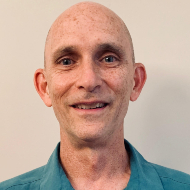Over 20 years ago, I first read the book Teaching About Evolution and the Nature of Science, published by the National Academies Press. While I had already been a teacher for several years, my teaching lacked coherence, which I immediately recognized as I studied this book. Even though I was a scientist before I was a teacher, I didn’t really understand how to translate what I did as a scientist to what I taught my students. What I discovered is that teaching evolution affords a way to explain the nature of science.
Evolving my teaching
NCSE Teacher Ambassador John Murnan describes his path from scientist to science teacher, with evolution as a touchstone.
Not only does studying evolution tie together everything in biology, it can also make clear how science as a discipline works.
From the book I learned to describe several characteristics of science. Science is limited, historical, probabilistic, and based on the weight of evidence. Limited to what we can detect with our senses (obviously extended by the tools we have developed) and limited to the natural world. Historical in that we build on the work of others—Isaac Newton famously said, "If I have seen further, it is by standing on the shoulders of giants." Probabilistic, for nothing in science is ever 100% certain: every explanation can be revised based on new evidence (e.g., common ancestry, the shape of the earth). And based on the weight of evidence: as scientists, we reach consensus on explanations based on the weight of evidence, while understanding that not all the evidence will necessarily support a particular explanation.
The entire process is iterative. Scientists develop hypotheses and then figure out ways to test them. The best part of being a scientist is that you get to be creative. If one idea or explanation isn't supported, it doesn't mean you failed; it means you learned something new. In the years between when he first formed his theory of natural selection and when he finally published, Darwin tested every alternative hypothesis he could develop and found that his theory was the best explanation for the phenomena he had observed. Even then, he left open the door for alternative explanations—natural selection is the primary, but by no means only, mechanism by which species change.
So not only does studying evolution tie together everything in biology, it can also make clear how science as a discipline works.
Even the teaching of science has evolved. I have moved from emphasizing rote memorization and using cookbook labs to designing activities that focus on the process of inquiry, activities that give my students a taste of what Darwin himself experienced on his voyage when he saw the fossils of giant sloths, black marine iguanas, tortoises with differently shaped shells—and of course the beaks of the finches. My students are exposed to learning opportunities that provide a similar sense of wonder and a way to understand the world around us.
As I reflect back on how I evolved as a teacher and a scientist, one thing has not changed: my commitment to teach evolution.

